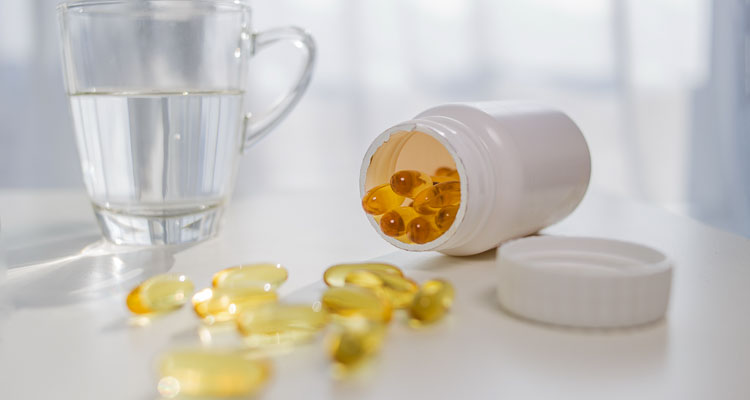
Israeli researchers note ‘striking’ difference in outcome of patients
Art Moore
WND News Center
Israeli scientists say they have accumulated the most convincing evidence so far that taking vitamin D supplements can help COVID-19 patients reduce the risk of serious illness or death.
The peer-reviewed study published Thursday in the journal PLOS is based on research conducted during Israel’s first two waves of the virus before vaccines became available, the Times of Israel reported.
The researchers from Bar Ilan University and the Galilee Medical Center said the impact was so strong that they could predict how infected people would fare based on only their ages and vitamin D levels.
“We found it remarkable, and striking, to see the difference in the chances of becoming a severe patient when you are lacking in vitamin D compared to when you’re not,” said Dr. Amiel Dror, a Galilee Medical Center physician and Bar Ilan researcher.
He said vitamin D strengthens the immune systems “to deal with viral pathogens that attack the respiratory system.”
“This is equally relevant for Omicron as it was for previous variants,” he told the Times of Israel.
The researchers published preliminary findings in June that showed 26 percent of coronavirus patients died if they were vitamin D deficient soon before hospitalization. That compared to 3 percent who had normal levels of vitamin D. And hospitalized COVID-19 patients who were vitamin D deficient were 14 times more likely than others to end up in severe or critical condition.
Dror said his team addressed the question in the scientific community of whether recent health conditions among the patients might have skewed the results. In other words, was vitamin deficiency a symptom rather than a contributing factor? To account for that possibility, the researchers examined each patient’s vitamin D levels over the two-year period prior to coronavirus infection.
“We checked a range of timeframes, and found that wherever you look over the two years before infection, the correlation between vitamin D and disease severity is extremely strong,” Dror said.
Because of its wide scope, he added, the study offers “stronger support than anything seen so far emphasizing the importance of boosting vitamin D levels during the pandemic.”













Thank you for sharing this great article. What a relief to find more researchers telling the truth and making it available to the world. There is a glimmer of hope, at last!
Vitamin D is a prohormone produced photochemically in the skin from 7-dehydrocholesterol. It is activated by two protein enzyme hydroxylation steps, the first in the liver and the second in the kidneys, and is required to absorb calcium from the gut into the bloodstream.
Taking cholecalciferol (vit D3) with menaquinone (vit K2) helps to ensure the calcium transported by D3 is absorbed by the bones where it is needed.
Cholecalciferol is often used as a dietary supplement in people who have inadequate vitamin D to maintain health.
D3 and K2 taken together enable calcium to be easily absorbed, prevent arteries from hardening, keep heart and bones healthy, regulate blood clotting and support a healthy immune system. Regular intake of magnesium helps reduce the risk of Vitamin D deficiency, and helps improve absorbtion of rssential minerals.
Vitamin D deficiency affects half of the population, is almost never diagnosed, and has been linked to many cancers, high blood pressure, heart disease, diabetes, depression, autoimmune disease, and more.
It is especially critical during this ‘plan’demic. It protects from acute respiratory tract infections like colds and influenza. Those who are deficient are much more likely to struggle with severe effects from COVID-19. One study showed 80% of COVID patients at a hospital in Spain were deficient in vitamin D, which also has a huge impact on the health and function of the cells.
Another vitamin that has been widely used in the past two years is vitamin C.
Ascorbic acid, or vitamin C, is essential to overall health. Unfortunately, humans have lost the ability to synthesize vitamin C due to mutations in the L-gulono-γ-lactone oxidase (GLO) gene, which codes for the enzyme responsible for catalyzing the last step of vitamin C biosynthesis. There are excellent supplements in various forms; but it is important to ascertain bowel tolerance levels if taking vitamin C in any form, other than liposomal C or IV-C.
Selenium, zinc, iodine and probiotics very nicely complement the neutraceuticals above in supporting the immune system.
Please continue sharing pertinent information, and all the very best with your research.